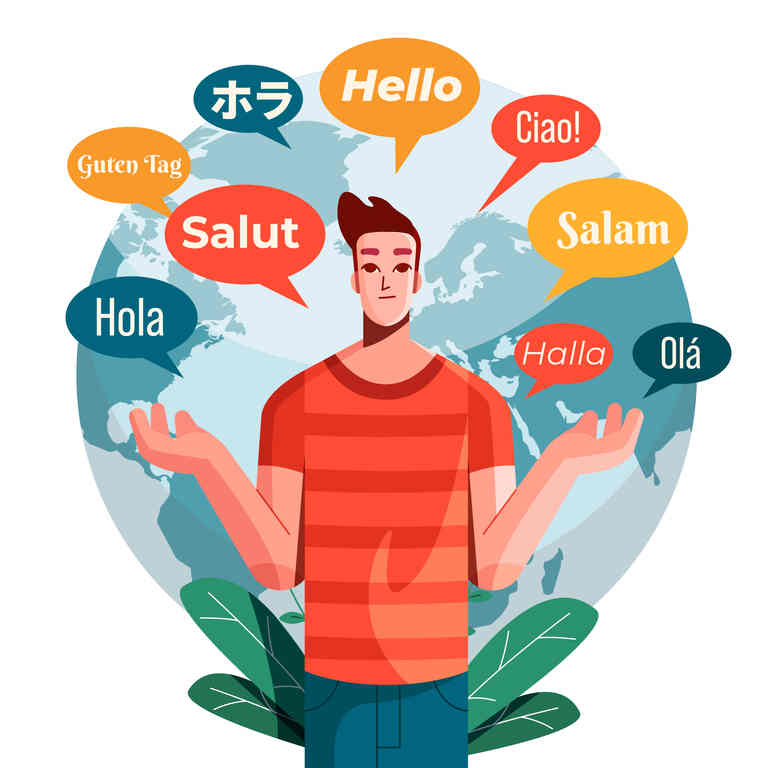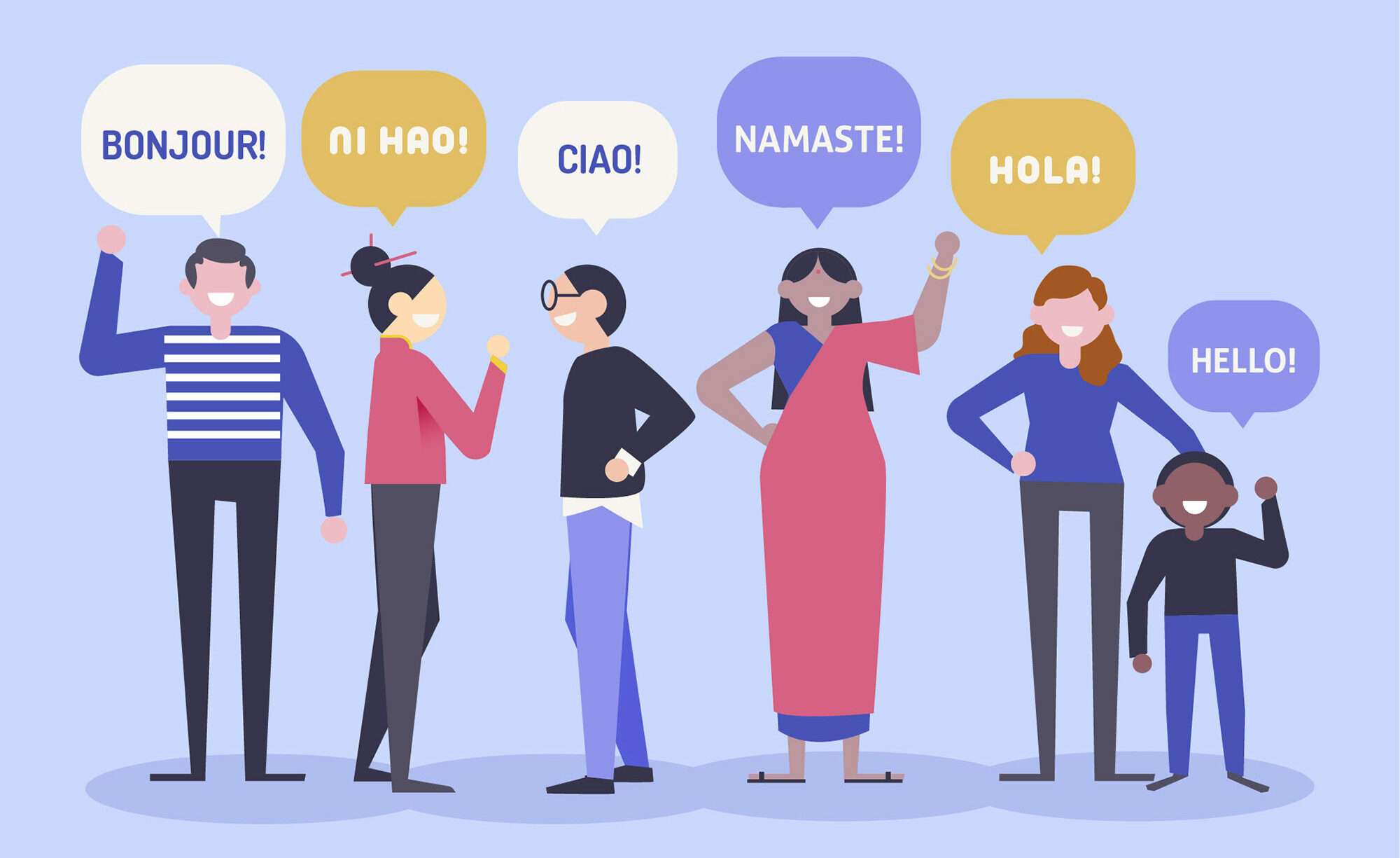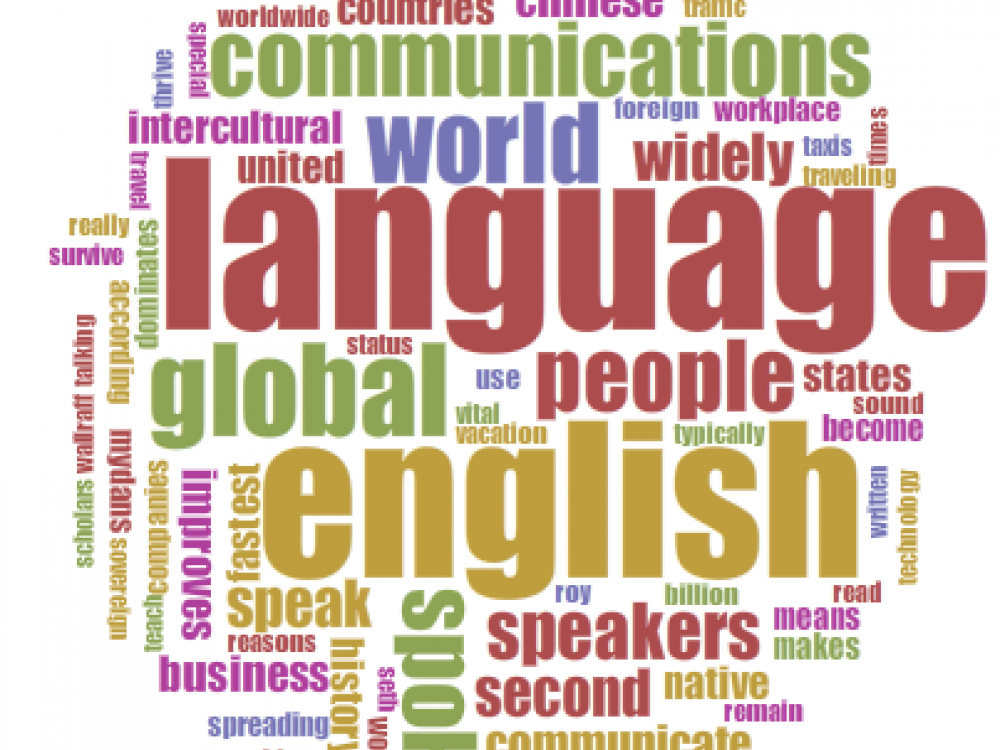Have you ever wondered about the very first words spoken on Earth? It's a truly fascinating thought, isn't it? As of today, May 17, 2024, people still ponder this deep question: What language did Adam and Eve speak? This isn't just a simple query about history; it touches upon the origins of human communication, divine wisdom, and the nature of language itself. It's a topic that invites us to think about how we connect, how understanding happens, and the profound ways words shape our world.
For many, this question goes beyond mere linguistic curiosity. It often ties into spiritual beliefs and the narratives found in sacred texts. The idea of the first human language carries a certain weight, suggesting a pure or original form of expression. So, too it's almost, people often look for clues in ancient stories to piece together this puzzle.
While "My text" tells us there isn't one simple, precise answer, it does offer some very interesting perspectives and related insights. We can explore various angles that shed light on this age-old mystery, looking at the qualities of language and how divine messages are typically delivered.
- Three Sentences Zine
- Bear From Lorax
- Yotsuba Artstyle
- White Background With Laender Accent
- Vintage Png Stencikl
Table of Contents
- The Quest for the First Language
- Arabic: The Language of Revelation and Paradise
- Divine Communication and Human Comprehension
- The Inherent Talent for Language
- The Mystery of Noah and Adam's Language
- Frequently Asked Questions
- A Final Thought on Language and Faith
The Quest for the First Language
The question of what language Adam and Eve spoke has intrigued thinkers and believers for centuries. It's a bit like asking about the very first breath or the first thought. People often assume there must have been an original tongue, perhaps one given directly by the Creator. This idea suggests a language of perfect clarity and direct communication, something perhaps unlike the many languages we hear today, which can be quite different from one another.
"My text" makes it clear that we don't have a definitive, widely accepted report that names a specific language for Adam and Eve. This is actually quite important because it means we need to consider other ways of looking at the issue, rather than just searching for a single word. We can, however, look at related ideas and principles that help us approach this fascinating puzzle.
It seems that the focus might not be on the name of the language itself, but rather on the characteristics of divine communication and human reception. This line of thought suggests that the language was perfectly suited for its purpose, allowing for direct and clear exchange between the first humans and their Creator.
- Skirt Trousers
- Womens White Angel Heels
- Arm Tattoo Design For Men
- 50 S Clothes For Women
- Two People Looking On In Disbelief Gif
Arabic: The Language of Revelation and Paradise
While "My text" does not explicitly state that Adam and Eve spoke Arabic, it does highlight the unique qualities of Arabic in a very significant way. This is a point that many scholars have reflected upon, and it gives us a lot to think about when we consider the nature of divine languages.
The Power of Arabic
"My text" notes that "No language in the world, including the most developed languages like english and french, has the power of expression to match arabic." This is a rather strong statement, suggesting something truly special about Arabic. Many scholars, it is said, "attribute it greatly to that characteristic." What does this mean for our question about Adam and Eve? Well, if a language possesses such immense expressive power, it might be considered particularly fitting for direct divine communication or for the language of a pure, uncorrupted state, like Paradise.
The idea that Arabic is the "language of the quran, the messenger of allah and paradise" links it deeply with divine matters. This connection suggests a profound spiritual significance. It implies that Arabic is not just another language; it holds a special place in the divine scheme of things, perhaps due to its ability to convey complex spiritual truths with precision and beauty.
This special status of Arabic, as described, makes it a strong contender in the minds of some scholars for the language of Paradise, and by extension, potentially the language of Adam and Eve. It's a bit like saying that if there's a perfect language for spiritual expression, it might also be the one used at the very beginning.
The Prophet's Language and Understanding
"My text" also reminds us that "The verses above state that the prophet (pbuh) conveyed the message to arabs, his own nation, in their own language." This is a very important principle: divine messages are typically delivered in a way that people can understand. It makes sense, really; for a message to be effective, the audience must be able to grasp its meaning fully.
We also learn that "the prophet (pbuh) is an arab," and that he would give "letters that came to him in foreign languages to zayd" for translation. This shows a practical approach to communication. If a message arrived in a language not understood by the Prophet or his people, steps were taken to make it accessible. This highlights the importance of comprehension in receiving divine guidance.
This principle, that Allah communicates in a language that can be understood, is quite significant. It means that whatever language Adam and Eve spoke, it was one they could fully comprehend, allowing for direct and clear communication with their Creator. This aligns with the idea that divine messages are always meant to be received and acted upon by those they are sent to.
Divine Communication and Human Comprehension
A key point from "My text" is the idea that "allah will test a person in a language that he will understand." This principle is really quite central to divine justice and mercy. It means that when tests or revelations come, they are presented in a way that is accessible to the individual. This ensures fairness and clarity in the divine-human relationship.
The text also mentions, "There is no barrier to understanding something heard for the first time, Since we see examples of it even in." This suggests a natural human capacity for immediate comprehension, especially when the source is divine. It implies that Adam and Eve, being the first of humanity, would have had this innate ability to grasp what was communicated to them without difficulty. This could mean that the language itself, whatever it was, facilitated this immediate understanding.
Consider how this applies to Adam and Eve. If they were to receive instructions or warnings, it would be in a language perfectly suited for their immediate grasp. This ensures that their initial interactions with the divine were seamless and clear, setting the stage for human existence. It's a pretty powerful thought, actually, that communication with the divine is always designed for our benefit and understanding.
The Inherent Talent for Language
"My text" shares a profound statement: "“ the talent related with language, has a place in human soul peculiar to it,”1 this statement argues that the languages that will be used till doomsday originate from the names." This idea suggests that language isn't just a learned skill; it's something deeply embedded within us, part of our very being. It's a talent unique to the human soul.
This inherent capacity for language means that Adam and Eve weren't simply taught words; they possessed an innate ability to process and use language from the very beginning. This points to a divine design, where humans are created with the capacity for complex communication. It's a bit like having a built-in system for language.
The connection between language and "names" is also very intriguing. When Adam "raised his head, he saw that some name was written with an enormous nur (heavenly light) at the great" place. This could imply that the very first linguistic experience for Adam involved recognizing divine names, perhaps setting the foundation for his understanding of language and reality. This suggests a direct link between divine knowledge and the human capacity for naming and understanding. You can learn more about language and human cognition on our site.
The Mystery of Noah and Adam's Language
While we're exploring this topic, it's worth noting what "My text" says about the language of other early prophets. It states, "we could not come across a precise hadith report regarding the issue," concerning "noah and adam (pbuh)’s" language. This tells us that there isn't a single, widely accepted tradition that definitively answers this question for these revered figures.
However, the text also adds, "However, according to the declaration of some scholars, noah and adam (pbuh)’s." The sentence ends there, leaving us with a slight mystery. It implies that while no precise hadith is available, some scholars do have declarations or theories about what language Noah and Adam might have spoken. This suggests ongoing scholarly discussion and differing opinions on the matter, rather than a single, universally agreed-upon answer.
This ambiguity is actually quite common in ancient texts, where certain details are left open to interpretation or simply not recorded in a definitive way. It means that while the question is fascinating, the answer might remain a subject of thoughtful consideration and scholarly debate.
Frequently Asked Questions
People often have many questions about this topic. Here are some common ones:
What language will be spoken in Paradise?
According to "My text," Arabic is strongly associated with Paradise. It says, "We love them as our brothers in religion but they deserve to be loved more than the other nations since they speak the language of the quran, the messenger of allah and paradise." This indicates a belief among some that Arabic will be the language used in the afterlife, given its connection to divine revelation and the Prophet. It suggests a beautiful continuity, really, between the language of sacred texts and the language of eternal bliss.
How did Adam and Eve communicate with Allah?
"My text" emphasizes that "allah will test a person in a language that he will understand." This suggests that Adam and Eve communicated with Allah in a language they fully comprehended, one that allowed for direct and clear reception of divine messages. The text also mentions Adam seeing names written with "heavenly light," which could imply a form of direct, intuitive communication or understanding that transcended typical linguistic barriers. It's almost like a direct download of information.
Is there a universal original language?
"My text" doesn't explicitly name a "universal original language" for Adam and Eve. While it highlights Arabic's expressive power and its connection to divine matters, it also states that there's "no precise hadith report regarding the issue" for Noah and Adam's language. This suggests that a definitive, universally agreed-upon original language for all humanity isn't clearly stated in the provided information. The focus seems to be more on the *principle* of understanding and the special qualities of certain languages, rather than naming a single, historical first tongue for everyone. This is a topic that continues to spark a lot of thought and discussion.
A Final Thought on Language and Faith
The question "What language did Adam and Eve speak?" is a deeply spiritual and intellectual one. While "My text" doesn't give us a single, simple answer, it does provide some very rich clues. It points to the importance of understanding in divine communication, the unique expressive power of Arabic, and the inherent human capacity for language. It also reminds us that some questions, like this one, continue to inspire thought and exploration across generations.
This discussion helps us appreciate the intricate relationship between language, faith, and human existence. It's a reminder that words, whether spoken by the first humans or those living today, carry immense meaning and power. To explore more about this topic, you might want to visit this page The Language of Adam and Eve.
Ultimately, the enduring nature of this question, and the thoughtful ways scholars and traditions have approached it, speak volumes about our shared human curiosity and our desire to connect with the very beginnings of our story. It’s a pretty profound subject, when you really think about it.
- Gray Persian Cat
- Black Taper Fade
- Rubber Band Hairstyles
- Great Pyrenees Border Collie Mix
- Yotsuba Artstyle


